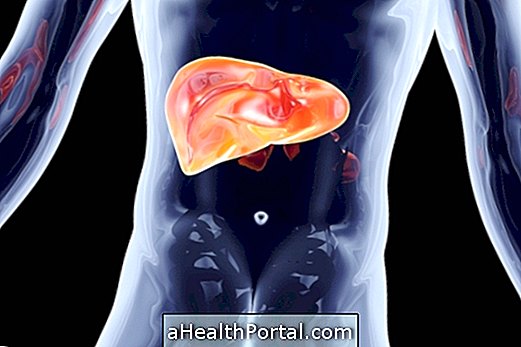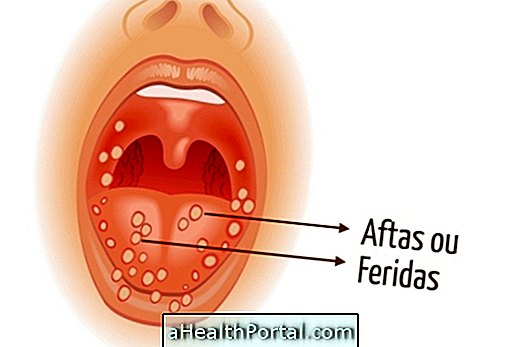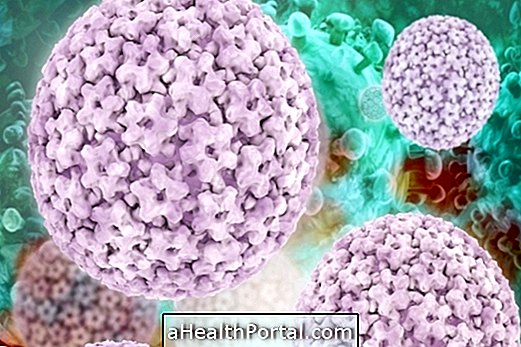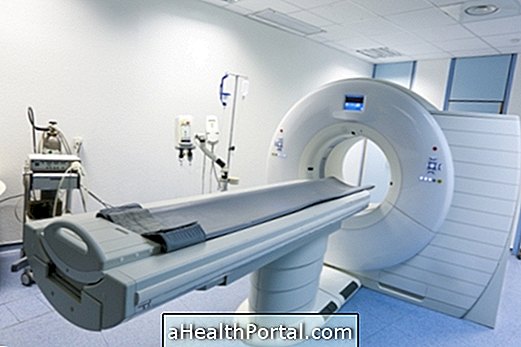Hepatitis C is an inflammation of the liver by a virus, which in the vast majority of cases ends up evolving into chronic disease. Patients with chronic hepatitis C may remain symptom free for years, or after some time, may have symptoms such as skin and yellow eyes, for example.
Hepatitis C rarely cures on its own and therefore clinical treatment is always recommended. It can be transmitted through contact with secretions and contaminated blood, being more common among injecting drug users who share needles and through contact with sharp objects or contaminated blood.

Hepatitis C transmission
The transmission occurs through contact with blood or secretions contaminated with the virus, such as semen or vaginal secretions with a person who has several sexual partners, during intimate contact without a condom.
Hepatitis C can also be transmitted through needle exchange, common in injecting drug users, and by piercing and tattooing with contaminated material, and by sharing razors, toothbrushes, or manicure or pedicure instruments.
Another form of contamination is blood transfusion performed before 1993, when blood could not yet be tested for hepatitis C, so all people who received blood before that year should be tested because they may be contaminated.
Although the chances of contamination of the baby during pregnancy are very small, there may be contamination during delivery.
How to prevent hepatitis C
Prevention can be done through simple measures such as:
- Use a condom in every intimate contact;
- Do not share syringes, needles, and razors that may cut the skin;
- Require disposable material when performing piercing, tattooing, acupuncture, and while going in the manicure or pedicure;
As there is still no vaccine for hepatitis C the only way to prevent the disease is to avoid its forms of transmission.
Symptoms of hepatitis C
In the acute phase, hepatitis C can cause symptoms, such as:
- Fever;
- Nausea, vomiting and lack of appetite;
- Abdominal pains, pains in muscles and joints;
- Dark urine and light stools;
- Yellowish color of skin and eyes.
These symptoms may not be noticed since most of the time the disease is asymptomatic and the person may be contaminated and the disease only manifests from 2 months to 2 years later. To know more about the symptoms see: Symptoms of hepatitis C.
The diagnosis of this type of hepatitis can be made through blood tests to detect the presence of anti-HCV antibodies, and the AST / TGO and ALT / TGP markers are indicative of inflammation in the liver, and therefore in the acute phase of hepatitis, its values can be up to 100 times greater than normal. However, usually this type of hepatitis is only discovered in the chronic phase of the disease, after a routine blood test.
Treatment for hepatitis C
The treatment for hepatitis C should be directed by a hepatologist or infectious and consists of taking medicines such as Interferon associated with Ribavirin, however these have serious side effects, which may make treatment difficult.
Side effects of interferon and ribavirin
Interferon:
- Influenza symptoms: fever, malaise, pain in the body, in the joints and headache;
- Neutropenia, thrombocytopenia and mild anemia;
- Nausea, diarrhea;
- Tiredness, irritability, behavioral changes;
- Emotional instability, depression, suicidal tendency;
- Diabetes mellitus, hyper or hypothyroidism;
- Autoimmune hepatitis, rheumatoid arthritis, autoimmune hemolytic anemia;
- Hair loss and skin rash;
- Arrhythmia, ischemia, cardiomyopathies;
- Interstitial nephritis, nephrotic syndrome and acute renal failure;
- Pneumonitis, dyspnoea, fever, hypoxemia;
- Changes in the retina: bleeding or ischemia;
- Temporary hearing loss;
Ribavirin:
- Dose-dependent hemolytic anemia;
- Mild fatigue, headache, insomnia, vertigo, depression;
- Nasal congestion, pharyngitis, cough and itching in the body;
- Worsening of cardiovascular changes due to anemia;
- Miscarriages or congenital malformation in case of pregnancy.
Other drugs that may also be indicated are Daklinza and Sofosbuvir, but these have a high financial cost. Learn more about hepatitis C treatment.
In addition, food is very important and helps to keep the liver healthy, avoiding cirrhosis. See the video below for some tips from our nutritionist:

























